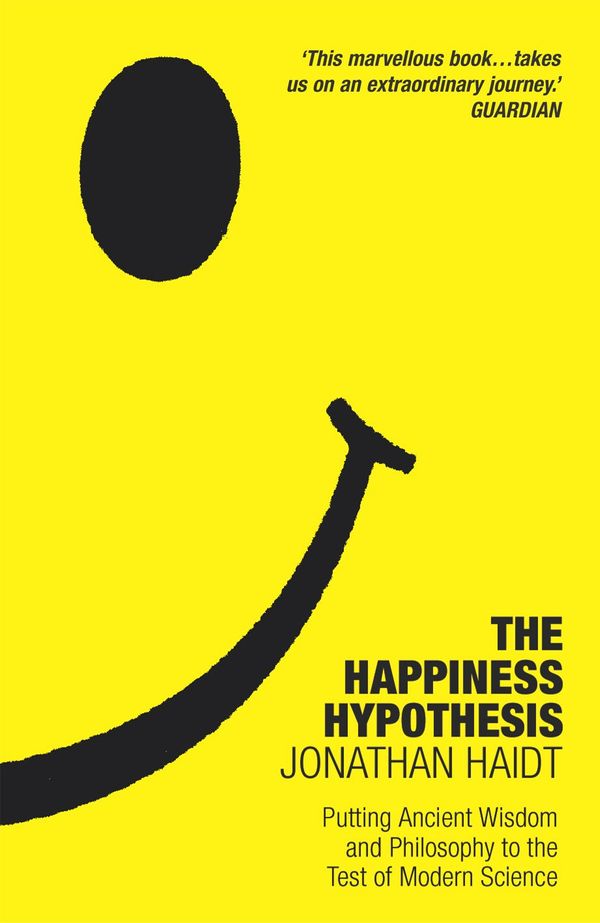By Chade-Meng Ten (2012)
Pages: 288, Final verdict: Should-read
Chade-Meng Ten is a happy man. An engineer at Google, his title is self explanatory: the Jolly Good Fellow. His life goal is creating world peace through mindfulness and mediation. Quite an ambitious premisse for his book...let's see if we are convinced.
Mindfulness at its core
Chade-Meng decided he wanted to change the world. And what better place to start than at Google? Hosted by the company, he devised a curriculum for the "Search Inside Yourself" (pun intended) course.
Much like the book, the journey through the course of inner search is divided into 3 stages:
- Attention Training
- Self-knowledge and self mastery
- Creation of useful mental habits
The final destination, of course, happiness. But how can we measure happiness? A quick glimpse into the world of science shows us that joy and well being can be inferred from brain scans, and unravel the story of how a Ph.D. in molecular genetics became the happiest person on earth.
"Anyone can be the happiest person in the world if they look for happiness in the right place. The problem is that we tend not to.", by Matthieu Richard
Benefits of meditation
Who hasn't heard of the impact that meditation can have on our lives?
From improved social skills to a boost of productivity at work, the virtues of meditation are widely depicted across media. The Huffington Post even singled it out as the daily habit that outrageous successful people do, headed by Steve Jobs or Arianna Huffington.
I wanted to find out why, but I was hesitant. After all, I don't even own an orange and golden buddhist robe. Does it mean I can't find happiness?

It seems that, at the end of the day, meditation isn't more than dedicated attention. We are guided through the analogy that our mind goes hand in hand with the muscles of our bodies. To meditate, is to exercise the mind. And to expand it, it needs caring, training, and discipline (but not Whey protein shakes).
Breathe as if your life depends on it
It all starts with breathing. Chade-Meng encourages us to be lazy practitioners. All it takes is 2 minutes a day. Sitting (or even walking), the idea is to focus on our own breathing for 2 minutes and clear our mind from incoming thoughts.
But why? What is the point of sitting in our rooms breathing? The answer, surprisingly, is to train our attention(s):
- Attention: Taking possession of the mind in a vivid form
- Meta-Attention: Understanding the factors which influence our attention
We start to realize the potential of meditation. By training meta-attention and the ability to command our brain's bandwidth, we can keep our mind away from distraction and achieve unprecedented levels of focus.

Search Inside Yourself is not only about meditation and mindfulness. The scientific and empirical basis for self-discovery are combined with knowledge from other areas such as:
- The basis for human motivation, drawing examples from companies like Zappos
- Dealing with emotional triggers, and the Siberian North Railroad practice technique
- The drivers of social behavior, through a tour of the SCRAF brain model
Golden, but not the holy grail
The prevailing idea throughout the book is that mindfulness will bring you a clearer state of mind, happiness and a better performance at work. And while that might be true, it also needs to be taken with a grain of salt.
While it would certainly benefit mankind, I believe the impact it can have on our lives is a function of our social context. Examples such as the recent attacks to Paris and Beirute, or the current refugies crisis, are a vivid reminder that our world faces challenges whose immediate solution goes beyond inner search.
You can start now
The great thing is that it does not take much to get started. Every chapter of the book ends with a walkthrough of a few exercises that require no setup.
Here are a few of the ones I liked the most:
- 2 minute breathing: The simplest of them all. Focus on your breathing for 2 uninterrupted minutes, and make it a habit
- Discovering my ideal future : If everything in your life, starting today, would exceed your most optimistic expectations, what would your life be like in 5 years?
- Inspiring you: Imagine you are attending a talk, where everybody (including you) was inspired and moved by the words of the speaker. Now imagine that the speaker is your future self in 20 years. What did you say and what made it inspiring?
Society moves at a high pace. Our average day is composed by a frantic sequence of events that take ownership of our mind and attention. We tell ourselves we don't have time to stop and think. I believe we should. All it takes are a few minutes a day, not to be doing something, but just to be.
"All the emotional skills learned in this book are useless if they cannot be applied in the real world”, by Chade-Meng Ten
Bottom line:
Happiness, Mindfulness, Self-Awareness and Emotional Intelligence. These are the central themes of Search Inside Yourself. Although most concepts are far from innovative, the pragmatism that accompanies those ideas is a refreshing change from tradicional approach to self-improvement books.
Will it be life changing? Hardly (is it ever?). Still, after reading it and having started with simple habits of mindfulness, I do feel....at a lack of another word....better. And at the end of the day, if a book helps you make each day a bit brighter, how could it not be worth reading?
Further learning:
- Buy the book online.
- Search Inside Yourself curriculum
- Change your breathing, change your life: An infographic of the Huffington Post



